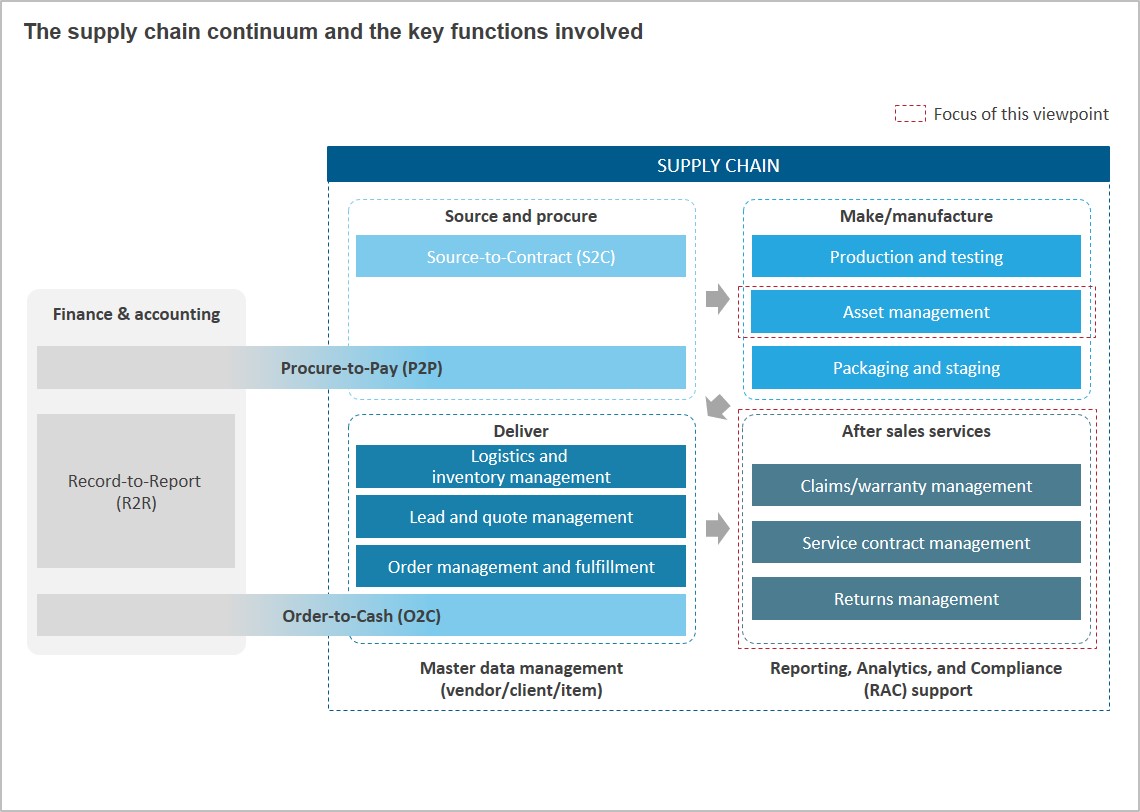Journey Toward Integrated Supply Chain Management
Driven by financial pressure, Enterprise Supply Chain Management (SCM) is evolving from a narrow view of ensuring supply chain security to an all-encompassing activity where everything from cost savings to turnaround-time reduction to regulatory compliance management are important. Given the broadening of the scope of SCM, integration across different supply chain functions is of prime importance. In fact, supply chain functions that have very high interdependence, such as Asset Monitoring (AM) and Field Services Management (FSM), are the low hanging fruits from an integration perspective.
However, any integration within a supply chain is easier said than done. Resource challenges, such as having the right talent and capabilities (analytics, automation, technology, etc.), make large-scale integration difficult. Typical enterprise partners – platform vendors, IT services providers, and engineering firms – can help integrate up to some extent; however, more often than not, the expertise and toolset required to achieve true end-to-end integration is outside of their realm. In such a scenario, the role of BPO service providers – who currently command relatively low market penetration can become very important.
This viewpoint explores the enterprise need to integrate AM and FSM in detail and delves deeper into the role that BPO service providers can play in supply chain integration.

